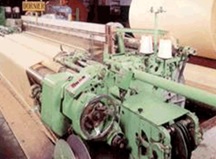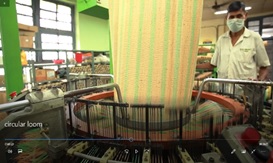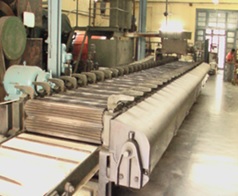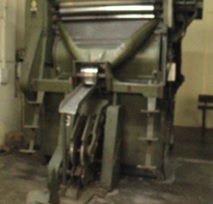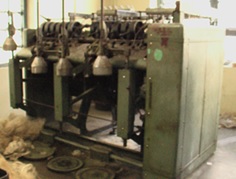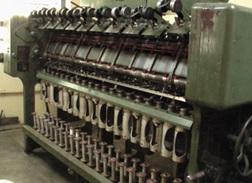Mechanical Processing (MP) Division carries out basic and applied research on mechanical processing, quality control and product development from long vegetable fibres. Improvement of process, productivity and product quality; design and development of product, machinery and instrument; quality assessment on geo-textile, agro-textile, apparel, packaging, automotive and industrial textiles are the main areas of research of this division.
Mechanical Processing Division mainly carries out basic and applied research on production of textiles based on natural fibres for traditional and diversified applications.
Mandate
- Basic and applied research on yarn and fabric preparation, quality control and product development from natural fibres.
- Design & development of specialty products for technical textiles, e.g., apparel, furnishing, packaging, geotextile, agro-textile, automobile etc.
- Conducting refresher courses on natural fibre textiles and its evaluation.
Facilities available
- Jute Spinning System (commercial size)
- Mini Jute Spinning System
- Miniature staple spinning system
- Circular weaving machine (commercial size)
- Jute rapier loom with bobbin creel
- Handloom and power loom with design facility (commercial size)
- Stitching machines
- Needle punch Nonwoven machine
- Thermal bonded nonwoven machine
- Adhesive bonded nonwoven machine
- Yarn & fabric testing facility
- Fibre modification Laboratory
Scientists
- Dr Surajit Sengupta, Principal Scientist & Head
- Dr Sanjoy Debnath, Principal Scientist
- Dr Manik Bhowmick, Scientist
- Dr Santanu Basak, Scientist
- Dr Sanchita Biswas Murmu, Scientist
- Er Manisha Jagadale, Scientist
Technologies Developed
- Batching oil substitute for food-grade packaging
- Machine parameters optimisation in jute spinning
- Novelty Yarns production like cover yarn, core yarn, twin spun.
- Jute based tubular fabric
- Yarn / nonwoven preparation of under exploited lingo-cellulosic/animal fibres like nettle, sisal, yak, angora, ramie etc.
- Value addition on fibres from agricultural waste like banana, coir, pineapple leaf fibre, linseed etc
- Blending of jute with other natural and manmade fibres
- Needle Punching nonwoven from natural fibres
- Adhesive Bonding nonwoven from natural fibres
- Thermal bonding nonwoven from natural fibres
- Woven or nonwoven insulation (thermal/sound) product
- Jute nonwoven carry bag
- Jute nonwoven plastic laminated carry bag
- Aluminium foil laminated jute nonwoven hygienic packaging
- Jute and blended geotextiles
- Agro textile: Jute mulch, horticultural pot, grass mat etc
INSTRUMENTATION
- Jute handloom with Dobby and Jacquard arrangement
- PLC Based Process control in jute spinning
- Computerised flexural behaviour tester
- Digital electrical insulation tester
- Horizontal fabric friction tester
- Hard fibre strength tester
Ongoing Institute Projects
- Diversified uses of chemically modified ramie
- Development of computerised measuring system of liquid propagation of textiles
- Development of carpet underlay from Sunhemp fibre
- Development Of Blended Textiles From Indian Flax Fibre For Technical Applications
- Characterization, Processing and Product Development of Indian Hemp: Value chain
- Development of home textiles and composites using indigenous wool and its blends (Partner of ICAR-CSWRI project)
Ongoing External Funded Projects
- Development of Natural fibre based vegan leather products (CRP – Fibre platform)
- Development of value added products from Kans Grass (MSME)
- Development of Bio-degradable Packaging (Rigid Box & light weight tray) from Jute Stick & Jute Pulp for Agri-Horticultural Produce (NJB)
Completed Institute Projects (March 2022)
- Application of jute based agro-textiles as mulching material for wide-scale awareness of farmers
- Development of natural fibre based moulded/laminated products
- Development of laminated needle punched nonwoven for impermeable light weight packaging
HoD (Acting) MP Division: Dr. Surajit Sengupta, Principal Scientist















